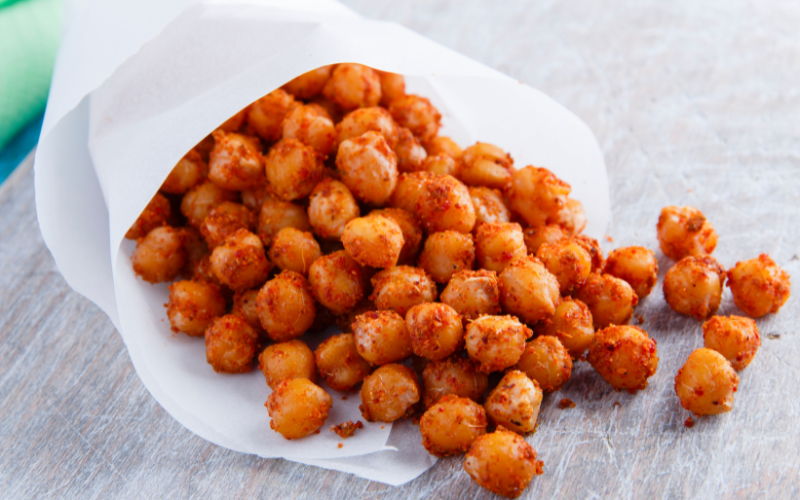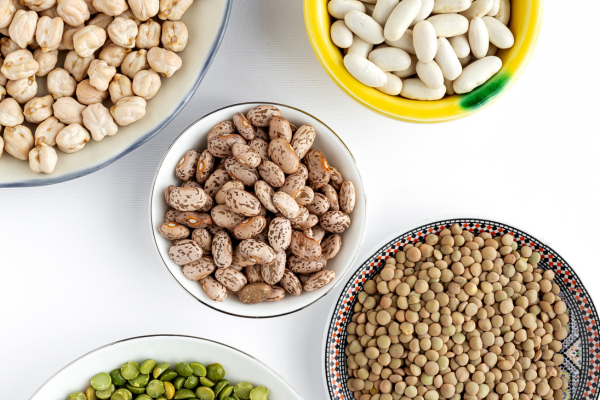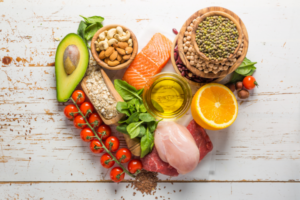Legumes Around the World
Legumes are a staple in kitchens around the world, prized for their rich nutritional value and versatility in countless recipes. Among the most popular are chickpeas and lentils—two powerhouse legumes that often find their way into soups, salads, and hearty mains. But what sets these two apart? Whether you’re crafting a comforting stew or looking for a plant-based protein boost, understanding the differences between chickpeas and lentils can help you make the best choice for your next dish.
Legume Facts: What Are Chickpeas?
Chickpeas, or garbanzo beans, are round, beige legumes with a firm texture and nutty flavor. They are staples in Middle Eastern and Indian cuisines, prominently in hummus and chana masala.
Legume Facts: What Are Lentils?
Lentils are small, lens-shaped legumes in various colors, including brown, green, and red. They have a subtle, earthy taste and cook quickly, making them popular in soups, stews, and salads.
Key Differences Between Chickpeas and Lentils
Texture and Flavor: As a legume, chickpeas offer a firmer bite and nuttier flavor, while lentils are softer with an earthier taste.
Cooking Time: Lentils cook faster than chickpeas, which typically require soaking and longer cooking times.
Nutritional Profile: Both legumes are rich in protein and fiber, but lentils generally have less fat and fewer calories compared to chickpeas.
The Culinary Uses of the Two Legumes
In Soups and Stews: Chickpeas maintain their shape during cooking, adding hearty texture to dishes like Moroccan harira. Lentils, especially red and yellow varieties, break down and create a creamy consistency in soups such as Indian dal.
In Salads: Chickpeas add a satisfying bite to salads, pairing well with Mediterranean flavors. Firm lentil varieties, like green or black lentils, absorb dressings well and complement vegetables in nutritious salads.
In Dips and Spreads: Chickpeas are the main ingredient in hummus, providing a smooth texture. Lentils can be used to make hearty spreads, offering a different flavor profile suitable for bread and crackers.
Legume Recipes to Inspire You
Spiced Roasted Chickpeas
Ingredients:
- 1 can (15 oz) chickpeas, drained and rinsed
- 1 tbsp olive oil
- 1 tsp paprika
- 1/2 tsp cumin
- 1/2 tsp garlic powder
- 1/4 tsp cayenne pepper (optional)
- 1/2 tsp salt
- 1/4 tsp black pepper
Instructions:
- Preheat oven to 400°F (200°C).
- Pat the chickpeas dry using a paper towel. Removing excess moisture helps them crisp up.
- In a bowl, toss the chickpeas with olive oil and all the spices until evenly coated.
- Spread the chickpeas in a single layer on a baking sheet.
- Roast for 25-30 minutes, shaking the pan halfway through, until chickpeas are golden and crispy.
- Allow to cool slightly and enjoy as a snack or toss into salads for added crunch.
Pro Tip: Store leftovers in an airtight container at room temperature for up to 3 days.

Spiced Roasted Chickpeas
Ingredients:
- 1 cup green or brown lentils, rinsed
- 1 tbsp olive oil
- 1 onion, diced
- 2 carrots, chopped
- 2 celery stalks, chopped
- 3 cloves garlic, minced
- 1 tsp cumin
- 1 tsp paprika
- 1/2 tsp turmeric
- 1/2 tsp thyme
- 6 cups vegetable broth
- 1 can (14 oz) diced tomatoes
- 2 bay leaves
- Salt and pepper to taste
- Fresh parsley (for garnish)
Instructions:
- Heat olive oil in a large pot over medium heat. Add onion, carrots, and celery. Sauté for 5-7 minutes until softened.
- Stir in the garlic, cumin, paprika, turmeric, and thyme. Cook for another minute until fragrant.
- Add the lentils, vegetable broth, diced tomatoes, and bay leaves. Bring to a boil.
- Reduce heat and let the soup simmer for 30-35 minutes until lentils are tender.
- Remove bay leaves and season with salt and pepper to taste.
- Garnish with fresh parsley and serve warm.
Serving Suggestion: Pair with crusty bread or serve over rice for a heartier meal.
Nutritional comparison (per 100g cooked)
Chickpeas
Calories
Protein
Fiber
Fat
Iron
164
8.9g
7.6g
2.6g
2.9mg
Lentils
Calories
Protein
Fiber
Fat
Iron
116
9.0g
7.9g
0.4g
3.3mg
Conclusion
Both chickpeas and lentils are nutritious, protein-packed legumes that can enhance a variety of dishes. Your choice between them should depend on the desired texture, flavor, and cooking time suitable for your recipe.



